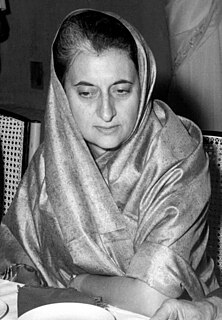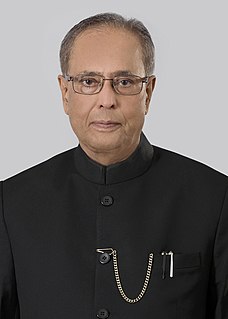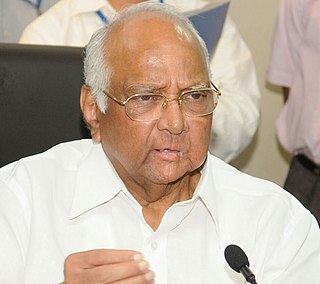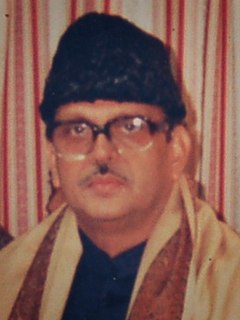 W
WThe Minister of Defence is the head of the Ministry of Defence of the Government of India. They are often assisted by a Minister of State for Defence and less-commonly, the lower-ranked Deputy Minister of Defence. The defence minister additionally serves as President of the Institute for Defence Studies and Analyses, and as Chancellor of the Defence Institute of Advanced Technology and of the National Defence University.
 W
WArackaparambil Kurien Antony, better known as A. K. Antony is an Indian politician and attorney who was the 23rd Defence Minister of India. He is the current Member of Parliament in the Rajya Sabha, from Kerala for the fifth term since 1985. He also currently serves as the Chairman of the Disciplinary Action Committee of the All India Congress Committee, Congress Working Committee, and member of the Congress Core Group and Central Election Committee.
 W
WDiwan Bahadur Sir Narasimha Ayyangar Gopalaswami Ayyangar, CSI, CIE, Member of the Drafting Committee of the Constitution, was a leader of the Rajya Sabha and a cabinet minister in the Government of India, first as a minister without portfolio but looking after Kashmir Affairs, and later as the railway minister.
 W
WShankarrao Bhavrao Chavan was an Indian politician who served twice as Chief Minister of Maharashtra from 1975 until 1977 and from 13 March 1986 until 24 June 1988. He was Finance Minister of India from 1987 to 1990 and served as Home Minister of India in the P. V. Narasimha Rao cabinet from 21 June 1991 to 16 May 1996. He served as Home Minister of India in the Rajiv Gandhi cabinet 31 December 1984 to 12 March 1986.
 W
WYashwantrao Balwantrao Chavan was an Indian politician. He served as the last Chief Minister of Bombay State and the first of Maharashtra after latter was created by the division of Bombay state. His last significant ministerial post was as the Deputy Prime Minister of India in the short lived Charan Singh government in 1979. He was a strong Congress leader, co-operative leader, social activist and writer. He was popularly known as Leader of Common People. He advocated social democracy in his speeches and articles and was instrumental in establishing co-operatives in Maharashtra for the betterment of the farmers.
 W
WGeorge Mathew Fernandes was an Indian trade unionist, statesman, journalist, and member of Rajya Sabha from Bihar for a short while, and a member of Lok Sabha for a very long period, starting from Bombay in 1967 but mostly representing Bihar. He was a key member of the Janata Dal and the founder of the Samata Party. He held several ministerial portfolios including communication, industry, railways, and defence.
 W
WIndira Priyadarshini Gandhi was an Indian politician and a central figure of the Indian National Congress. She was the first and, to date, only female Prime Minister of India. Indira Gandhi was the daughter of Jawaharlal Nehru, the first prime minister of India. She served as prime minister from January 1966 to March 1977 and again from January 1980 until her assassination in October 1984, making her the second longest-serving Indian prime minister after her father.
 W
WRajiv Ratna Gandhi was an Indian politician who served as the 6th Prime Minister of India from 1984 to 1989. He took office after the 1984 assassination of his mother, Prime Minister Indira Gandhi, to become the youngest Indian Prime Minister at the age of 40.
 W
WArun Jaitley was an Indian politician and attorney. A member of the Bharatiya Janata Party, Jaitley served as the Minister of Finance and Corporate Affairs of the Government of India from 2014 to 2019. Jaitley previously held the cabinet portfolios of Finance, Defence, Corporate Affairs, Commerce and Industry, and Law and Justice in the Vajpayee government and Narendra Modi government.
 W
WKailash Nath Katju was a prominent politician of India. He was the Governor of Orissa and West Bengal, the Chief Minister of Madhya Pradesh, the Union Home Minister and the Union Defence Minister. He was also one of India's most prominent lawyers. He was part of some of the most riveting cases of his times, including the famous INA trials. Dr Katju joined the freedom struggle against the British rule in India early on and spent several years incarcerated with fellow freedom fighters.
 W
WVengalil Krishnan Krishna Menon was an Indian politician, non-career diplomat and nationalist. He was described by some as the second most powerful man in India, after his ally, the first Prime Minister of India, Jawaharlal Nehru. He wrote the first draft of the Preamble to the Constitution of India, initiated the idea of the Constituent Assembly of India and is considered the architect, and to have coined the name, of the Non-Aligned Movement.
 W
WPranab Kumar Mukherjee was an Indian politician who served as the 13th President of India from 2012 until 2017. In a political career spanning five decades, Mukherjee was a senior leader in the Indian National Congress and occupied several ministerial portfolios in the Government of India. Prior to his election as President, Mukherjee was Union Finance Minister from 2009 to 2012. He was awarded India's highest civilian honour, the Bharat Ratna, in 2019, by the President of India, Ram Nath Kovind.
 W
WJawaharlal Nehru was an Indian independence activist and, subsequently, the first Prime Minister of India, as well as a central figure in Indian politics both before and after independence. He emerged as an eminent leader of the Indian independence movement, serving India as Prime Minister from its establishment in 1947 as an independent nation, until his death in 1964. He was also known as Pandit Nehru due to his roots with the Kashmiri Pandit community, while Indian children knew him as better as Chacha Nehru.
 W
WKrishna Chandra Pant was an Indian Member of Parliament for 26 years and was the Prime Minister's interlocutor on Kashmir. He was a cabinet minister in the Government of India and held several constitutional positions over a period of 37 years. Pant had held the positions of Minister for Defence, Minister of state for Home Affairs, Minister of Steel and Heavy Engineering, Finance, Atomic Energy and Science and Technology. He was the First Chairman of the Advisory Board on Energy, Chairman of the 10th Finance Commission and the Deputy Chairman of the Planning Commission of India, the economic planning body of India; his Vision 2020 document was published as India's Development Scenario, Next Decade and Beyond.
 W
WManohar Gopalkrishna Prabhu Parrikar was an Indian politician and leader of the Bharatiya Janata Party who served as Chief Minister of Goa from 14 March 2017 until his death. Previously, he was Chief Minister of Goa from 2000 to 2005 and from 2012 to 2014 and from 2017 to 2019. He also served as the Minister of Defence from October 2014 to March 2017. In January 2020, he was posthumously awarded Padma Bhushan.
 W
WSharad Govindrao Pawar, is an Indian politician from Baramati, Maharashtra, with over 50 years of public service. He holds a position of prominence in politics of India as well as the regional politics of Maharashtra. During his long career, Pawar has served as the Chief Minister of Maharashtra on three occasions and held the posts of Minister of Defence and Minister of Agriculture in the Government of India. He is president of the Nationalist Congress Party (NCP), which he founded in 1999, after separating from the Indian National Congress. He leads the NCP delegation in the Rajya Sabha, the upper chamber of the Indian parliament. He is one of the founders of Maha Vikas Aghadi, a post-poll alliance in Maharashtra between Shivsena, NCP, and INC.
 W
WJagjivan Ram, known popularly as Babuji, was an Indian independence activist and politician from Bihar. He was instrumental in the foundation of the All India Depressed Classes League, an organisation dedicated to attaining equality for untouchables, in 1935 and was elected to Bihar Legislative Assembly in 1937, after which he organised the rural labour movement.
 W
WPamulaparthi Venkata Narasimha Rao was an Indian lawyer and politician who served as the 9th Prime Minister of India from 1991 to 1996. His ascendancy to the prime ministership was politically significant in that he was the second holder of this office from a non-Hindi-speaking region and the first from South India. He led an important administration, overseeing a major economic transformation and several home incidents affecting national security of India. Rao, who held the Industries portfolio, was personally responsible for the dismantling of the Licence Raj, as this came under the purview of the Ministry of Commerce and Industry, reversing the socialist policies of Rajiv Gandhi's government. He is often referred to as the "Father of Indian Economic Reforms". Future prime ministers Atal Bihari Vajpayee and Manmohan Singh continued the economic reform policies pioneered by Rao's government. He employed Dr. Manmohan Singh as his Finance Minister to embark on historic economic transition. With Rao's mandate, Dr. Manmohan Singh launched India's globalisation angle of the reforms that implemented the International Monetary Fund (IMF) policies to rescue the almost bankrupt nation from economic collapse. Rao was also referred to as Chanakya for his ability to steer economic and political legislation through the parliament at a time when he headed a minority government.
 W
WChandra Shekhar Singh was an Indian politician who served as the eighth Prime Minister of India, between 10 November 1990 and 21 June 1991. He headed a minority government of a breakaway faction of the Janata Dal with outside support from the Indian National Congress as a stop gap arrangement to delay elections. He is the first Indian Prime Minister who has never held any Government office. His government was largely seen as a "puppet" and "lame duck" and the government was formed with the fewest party MPs in the Lok Sabha. His government could not pass the budget at a crucial time when Moody had downgraded India and it further went down after the budget was not passed and global credit-rating agencies further downgraded India from investment grade making it impossible to even get short-term loans and in no position to give any commitment to reform, the World Bank and IMF stopped their assistance. Chandrasekhar had to authorise mortgaging of gold to avoid default of payment and this action came in for particular criticism as it was done secretly in the midst of the election. The Indian economic crisis, 1991, and the Assassination of Rajiv Gandhi plunged his government into crisis.
 W
WBaldev Singh was an Indian Sikh political leader, he was an Indian independence movement leader and the first Defence Minister of India. Moreover, he represented the Punjabi Sikh community in the processes of negotiations that resulted in the independence of India, as well as the Partition of India in 1947.
 W
WMajor Jaswant Singh Jasol was an officer of the Indian Army and an Indian Cabinet Minister. He was one of the founding members of the Bharatiya Janata Party (BJP), and was one of India's longest serving parliamentarians, having been a member of the Lok Sabha or the Rajya Sabha almost continuously between 1980 and 2014. He was NDA's Vice-presidential candidate in the 2012 Indian vice presidential election. Singh was the only leader from Rajasthan who had the distinction of becoming the Minister Of External Affairs, Finance And Defense.
 W
WRajnath Singh is an Indian politician serving as the Defence Minister of India. He is the former President of Bharatiya Janata Party. He has previously served as the Chief Minister of Uttar Pradesh and as a Cabinet Minister in the Vajpayee Government. He was the Home Minister in the First Modi Ministry. He has also served as the President of the BJP twice i.e. 2005 to 2009 and 2013 to 2014. He is a veteran leader of the BJP who started his career as a RSS Swayamsevak. He is an advocate of the party's Hindutva ideology.
 W
WVishwanath Pratap Singh was an Indian politician who was the 7th Prime Minister of India from 1989 to 1990.
 W
WNirmala Sitharaman is an Indian economist and politician serving as the current Minister of Finance and Corporate Affairs of India. She is a member of the Rajya Sabha, upper house of the Indian Parliament, since 2014. Sitharaman formerly served as the Defence Minister of India, thereby becoming India's second female defence minister and also the second female finance minister after Indira Gandhi, and first full-time female Finance Minister. She has served as the Minister of State for Finance and Corporate Affairs under the Ministry of Finance and the Minister for Commerce and Industry with independent charge. Prior to that, she served as a national spokesperson for the BJP.
 W
WChidambaram Subramaniam, was an Indian politician and Independence activist. He served as Minister of Finance and Minister of Defence in the union cabinet. He later served as the Governor of Maharashtra. As the Minister for Food and Agriculture, he ushered the Indian Green Revolution, an era of self-sufficiency in food production along with M. S. Swaminathan, B. Sivaraman and Norman E. Borlaug. He was awarded Bharat Ratna, Indian's highest civilian award, in 1998, for his role in ushering Green Revolution.
 W
WRamaswamy Venkataraman was an Indian lawyer, Indian independence activist and politician who served as a Union Minister and as the eighth President of India.
 W
WMulayam Singh Yadav is an Indian politician from Uttar Pradesh and the founder-patron of the Samajwadi Party. He served for three non-consecutive terms as the Chief Minister of Uttar Pradesh from 1989 to 1991, 1993 to 1995 and 2003 to 2007 respectively and also served as the Minister of Defence, Government of India from 1996 to 1998 in the United Front. He is currently the Member of Parliament, representing the constituency of Mainpuri in the Lok Sabha. He had also earlier served as the Member of Parliament from Azamgarh.